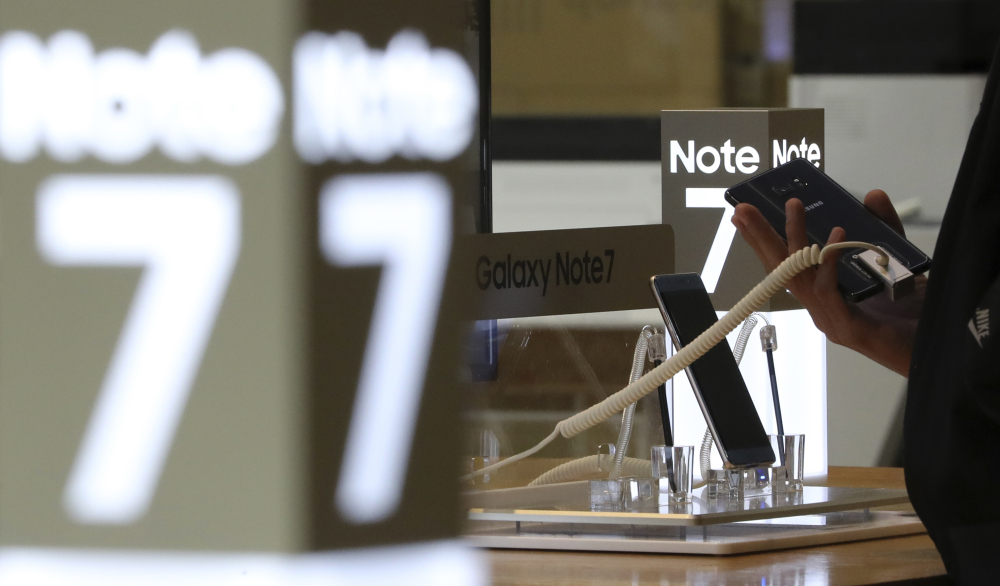WASHINGTON — Passengers and flight crews will be banned from bringing Samsung Galaxy Note 7 smartphones on airline flights under an emergency order issued Friday by the Department of Transportation in response to reports of the phones catching fire.
The order, which goes into effect on Saturday at noon, says the phones may not be carried on board or packed in checked bags on flights to and from the United States or within the country. The phones also can’t be shipped as air cargo.
Passengers caught attempting to travel with the phones will have the phones confiscated and may face fines, the department said.
Samsung has recalled more than 2.5 million of the smartphones, citing a battery manufacturing error. The South Korean company discontinued the product earlier this week, less than two months after its August release.
The Consumer Product Safety Commission says there have been nearly 100 reports of batteries in Note 7 phones overheating in the U.S. One fire erupted on a Southwest Airlines flight earlier this month. In another case, a family in St. Petersburg, Florida, reported that a Galaxy Note 7 phone left charging in their Jeep caught fire, destroying the vehicle.
The Federal Aviation Administration had previously warned passengers not to pack the phones in their checked bags and to power them off and not charge them while on board planes.
“We recognize that banning these phones from airlines will inconvenience some passengers, but the safety of all those aboard an aircraft must take priority,” said Transportation Secretary Anthony Foxx.
Samsung said in a statement that it is working with the department to make customers aware of the ban.
The company also urged Note 7 customers to get a refund or exchange their phones by visiting their phone service provider or retail store. The Note 7 isn’t the only gadget to catch fire thanks to lithium-battery problems, which have afflicted everything from laptops to Tesla cars to Boeing’s 787 jetliner. At least three U.S. airlines are adding new fire-suppression equipment to fleets in case a cellphone or laptop battery overheats.
Rechargeable lithium batteries are more susceptible to overheating than other types of batteries if they are exposed to high temperatures, are damaged or have manufacturing flaws.
Send questions/comments to the editors.



Success. Please wait for the page to reload. If the page does not reload within 5 seconds, please refresh the page.
Enter your email and password to access comments.
Hi, to comment on stories you must . This profile is in addition to your subscription and website login.
Already have a commenting profile? .
Invalid username/password.
Please check your email to confirm and complete your registration.
Only subscribers are eligible to post comments. Please subscribe or login first for digital access. Here’s why.
Use the form below to reset your password. When you've submitted your account email, we will send an email with a reset code.